In today’s competitive market, developing a robust real estate marketing strategy is essential for realtors aiming to stand out and effectively connect with potential clients. A key component of this strategy is storytelling that reflects the client’s journey, creating a relatable and engaging narrative.
Understanding the Client’s Journey
Every client embarks on a unique journey when buying or selling a property. By understanding and reflecting this journey in your real estate marketing strategy, you can create content that resonates on a personal level. Also, this approach not only builds trust but also positions you as a realtor who genuinely understands and cares about the client’s needs and aspirations.
The Power of Storytelling in your Real Estate Marketing Strategy
Storytelling is a powerful tool that can transform your marketing strategy. By sharing stories that mirror your clients’ experiences, you make your marketing more relatable and memorable. For instance, narrating a story about a young couple finding their first home can resonate with similar prospective buyers, making them envision their own journey with you as their guide.
Strategies for Effective Storytelling
-
Client Testimonials and Success Stories: Share authentic testimonials from past clients. These stories serve as social proof and provide potential clients with relatable scenarios, showcasing your ability to meet their needs.
-
Visual Storytelling: Utilize high-quality photos and videos to tell a property’s story.. For example, a virtual tour that highlights the property’s unique features can help clients visualize themselves in the space, making an emotional connection.
-
Content Marketing: Create blog posts or social media content that addresses common challenges and milestones in the real estate journey. Topics like “Navigating the First-Time Home Buying Process” or “How to Prepare Your Home for Sale” can provide value and position you as a knowledgeable resource.
Incorporating Client-Centric Narratives
To effectively reflect your clients’ journeys, consider the following approaches:
-
Empathy Mapping: Understand your clients’ emotions, thoughts, and challenges at each stage of their journey which, allows you to create content that addresses their specific needs and concerns.
-
Personalized Communication: Tailor your messages to reflect the individual experiences of your clients For instance, personalized emails or messages that acknowledge their unique situations can foster a deeper connection.
Benefits of a Storytelling Approach
Implementing a storytelling approach in your marketing strategy offers several benefits:
-
Enhanced Engagement: Stories capture attention and are more likely to be shared, therefore increasing your reach and visibility.
-
Emotional Connection: By resonating with clients on an emotional level you firstly build trust and loyalty, which can lead to referrals and repeat business.
-
Differentiation: In a crowded market, storytelling sets you apart by highlighting your unique approach and understanding of client experiences.
In conclusion developing a marketing strategy that incorporates storytelling reflecting your clients’ journeys is a powerful way to connect, engage, and build lasting relationships. By understanding and empathizing with your clients’ experiences, you can create compelling narratives that not only showcase your expertise but also position you as a trusted partner in their real estate endeavors.
For more insights on crafting client-centric stories in your marketing, you can refer to the National Association of REALTORS® article on this topic.








